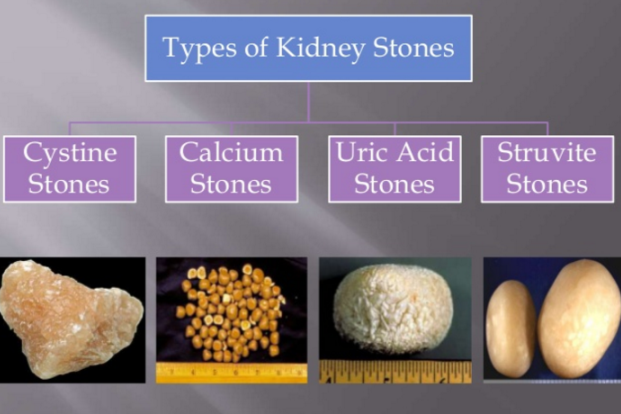Contrasting Kidney Stones vs UTI: What You Need to Learn About Their Impact on Wellness
Contrasting Kidney Stones vs UTI: What You Need to Learn About Their Impact on Wellness
Blog Article
Checking Out the Manifestations and Causes of Kidney Stones in Comparison to Urinary System System Infections: An In-depth Overview
The exploration of kidney stones and urinary tract infections (UTIs) reveals an intricate interaction of symptoms and underlying causes that call for mindful evaluation. What are the vital differences in their signs and symptoms, and how might these inform therapy approaches?
Review of Kidney Stones
Kidney rocks, likewise known as renal calculi, type when specific compounds in the pee crystallize and accumulation, bring about the development of difficult deposits within the kidneys. These rocks can differ in size, varying from a grain of sand to a golf sphere, and can be made up of numerous products, the most common being calcium oxalate, uric acid, struvite, and cystine. The development of kidney stones is influenced by several factors, including nutritional behaviors, fluid intake, and hereditary tendency.
Signs and symptoms of kidney stones may consist of extreme pain in the back or side, blood in the urine, queasiness, and regular urination, particularly as the rock relocates through the urinary system system. Diagnosis usually involves imaging researches such as ultrasound or CT scans, together with urinalysis to identify the rock's structure.
Treatment choices vary based upon the size and kind of stone, in addition to the severity of symptoms (Kidney Stones vs UTI). Tiny stones may pass naturally with increased liquid intake, while bigger stones may call for clinical interventions such as lithotripsy or surgical removal. Comprehending the pathophysiology and danger variables connected with kidney rocks is vital for effective avoidance and monitoring
Introduction of Urinary System Infections
Urinary system tract infections (UTIs) prevail bacterial infections that influence any type of component of the urinary system, including the kidneys, ureters, bladder, and urethra. They predominantly take place when germs, often from the stomach system, go into the urinary system, causing inflammation and infection. UTIs are categorized into 2 major types: straightforward and complex. Straightforward UTIs normally occur in healthy and balanced individuals with normal urinary systems, while difficult UTIs might arise in people with underlying problems, such as structural problems or compromised body immune systems.
The frequency of UTIs is notably greater in women than men, mostly due to anatomical distinctions, such as a shorter urethra. Danger variables include sex, certain contraceptive methods, urinary retention, and dehydration. The diagnosis of UTIs is usually confirmed with pee tests, which may expose the visibility of bacteria, white blood cells, or red blood cells.

Signs And Symptoms of Kidney Stones
The pain connected with kidney stones can show up in various ways, often leading people to seek clinical interest. Among the most typical signs is severe discomfort, usually local in the lower back or side, which may radiate to the abdominal area or groin. This discomfort, frequently called sharp or cramping, can occur all of a sudden and might change in intensity.
Furthermore, individuals may experience hematuria, or blood in the pee, which can vary from tiny quantities to visible staining. This symptom may be come with by changes in urinary system practices, such as boosted regularity or urgency, as well as discomfort during peeing. Nausea or vomiting and throwing up are additionally common, typically resulting from the body's reaction to extreme pain.
Sometimes, individuals might experience fever and cools, especially if a secondary infection creates because of the blockage created by the stones. In general, the combination of extreme discomfort, hematuria, altered urinary system patterns, and gastrointestinal signs and symptoms can offer substantial insight right into the presence of kidney stones, calling for punctual clinical examination and intervention. Recognizing these symptoms is her response vital for timely medical diagnosis and effective administration of the problem.
Signs of Urinary Tract Infections
Infections within the urinary tract typically provide a variety of distinctive symptoms that can dramatically influence life. The most usual signs include a consistent urge to urinate, often accompanied by a burning experience during peeing, called dysuria. Individuals might likewise experience raised frequency of urination, creating percentages of pee each time.
Various other significant signs include reeky or over cast urine, which might suggest the existence of microorganisms or pus. In some instances, urine may appear red or pink due to the existence of blood, a problem referred to as hematuria. Furthermore, try here people might experience pelvic pain or pressure, which can even more exacerbate the feeling of necessity.
Systemic symptoms might likewise manifest, such as high temperature, chills, and fatigue, especially if the infection has ascended to the kidneys. It is vital to acknowledge these signs early, as unattended urinary system system infections can lead to more serious complications. Kidney Stones vs UTI. Prompt medical interest is advised when these signs and symptoms are observed, permitting suitable analysis analysis and therapy to minimize pain and prevent further wellness concerns
Root Causes Of Each Problem
Often, kidney stones and urinary system infections arise from distinct yet sometimes overlapping reasons that can affect people in a different way. Dehydration, inadequate fluid consumption, and high-sodium diets can aggravate these problems, advertising condensation within the urinary system system.

Comprehending these distinct causes is crucial for prevention and treatment. Kidney Stones vs UTI. While way of life adjustments might mitigate the threat of kidney rocks, ideal hygiene and prompt therapy of urinary tract infections are vital for lowering their recurrence and connected difficulties
Final Thought
In recap, kidney stones and urinary system system infections present distinct symptoms and underlying reasons. Kidney stones are characterized by extreme discomfort and metabolic factors, while urinary system system infections largely include bacterial infections leading to urinary system necessity and discomfort.
The expedition of kidney stones and urinary system tract infections (UTIs) reveals a page complicated interplay of signs and symptoms and underlying causes that warrant cautious evaluation.Urinary system infections (UTIs) are usual bacterial infections that affect any type of part of the urinary system, consisting of the kidneys, ureters, bladder, and urethra.Often, kidney stones and urinary system tract infections occur from distinct yet occasionally overlapping causes that can affect individuals in different ways.In recap, kidney rocks and urinary tract infections present distinct symptoms and underlying causes. Kidney stones are defined by extreme discomfort and metabolic elements, while urinary system infections mostly involve microbial infections leading to urinary seriousness and discomfort.
Report this page